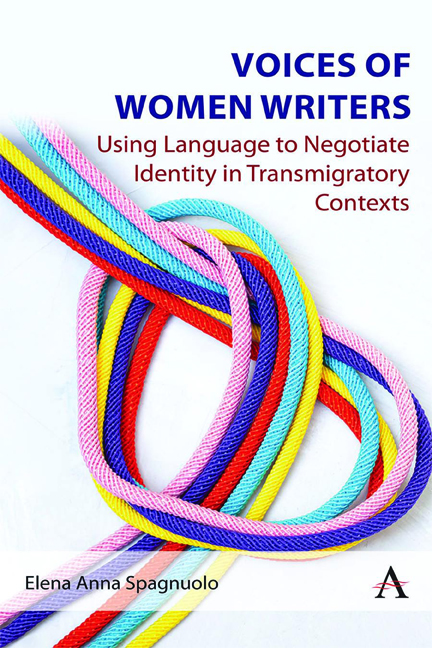Book contents
- Frontmatter
- Contents
- Introduction
- 1 Revoicing Female Migrant Identities through Creative Multilingualism
- 2 Gianna Patriarca: Self-Translating as a Strategy of Re-grounding
- 3 Dôre Michelut: Coming to Terms with the Mother Tongue
- 4 Licia Canton: Rewriting the Italian Mother (Tongue, Land)’s Legacy in Self-Translation
- 5 Francesca Duranti: ‘Trans-Writing’ the Self through Acts
- Conclusion
- References
2 - Gianna Patriarca: Self-Translating as a Strategy of Re-grounding
Published online by Cambridge University Press: 01 March 2024
- Frontmatter
- Contents
- Introduction
- 1 Revoicing Female Migrant Identities through Creative Multilingualism
- 2 Gianna Patriarca: Self-Translating as a Strategy of Re-grounding
- 3 Dôre Michelut: Coming to Terms with the Mother Tongue
- 4 Licia Canton: Rewriting the Italian Mother (Tongue, Land)’s Legacy in Self-Translation
- 5 Francesca Duranti: ‘Trans-Writing’ the Self through Acts
- Conclusion
- References
Summary
Finding a ‘Voice’ as an Italian-Canadian Woman
Gianna Patriarca is one of the major voices in Italian-Canadian literature. The term refers to a body of literature produced by over one hundred authors of Italian background living in Canada; some of them were born in Italy and moved to Canada afterwards, while others were born in Canada to Italian parents. Their literary products show two main features. Firstly, they principally deal with the phenomenon of migration and its related issues; secondly, their works are characterised by an extensive multilingualism, which constitutes ‘one of the distinctive features of the literatures of the Italian emigration’ (Loriggio 2021, 805). Their texts are written in Italian, French, English and regional dialects. Alongside the extensive use of CS, several Italian-Canadian writers also practise self-translation; for instance, Mario Duliani translated his French novel La ville sans femmes (1945) into the Italian La città senza donne (1946). Likewise, the Quebec author Marco Micone selftranslated Gens du silence (1996) into the Italian Non era per noi (2004).
The beginning of Italian-Canadian writing dates to 1978, thanks to the writer Pier Giorgio Di Cicco, who was also editor of the literary magazine Books in Canada. He was the first to realise the existence of an impressive literary production that attempted to express itself and be recognised alongside the official Canadian literature in English and French. To this end, in 1978, he published Roman Candles, an anthology of literary works produced by seventeen Italian-Canadian writers. Moreover, in 1978, D’Alfonso, one of the most influential figures in the group, founded Guernica Editions, the publishing house that played a key role in promoting Italian-Canadian writers. The date therefore marks the birth of Italian-Canadian writing as an officially recognised body of literature. It also marks the emergence of an increasing self-awareness and self-consciousness about the relevance and importance of these works; as the writer and academic Joseph Pivato claimed, ‘[…] we had discovered a literature about ourselves, and the great responsibility which this entailed’ (1998, 13). These writers became aware that they had created a set of writings that required and deserved the same space of expression and accreditation as mainstream literary productions written in English and French.
- Type
- Chapter
- Information
- Voices of Women WritersUsing Language to Negotiate Identity in (Trans)migratory Contexts, pp. 27 - 56Publisher: Anthem PressPrint publication year: 2023



